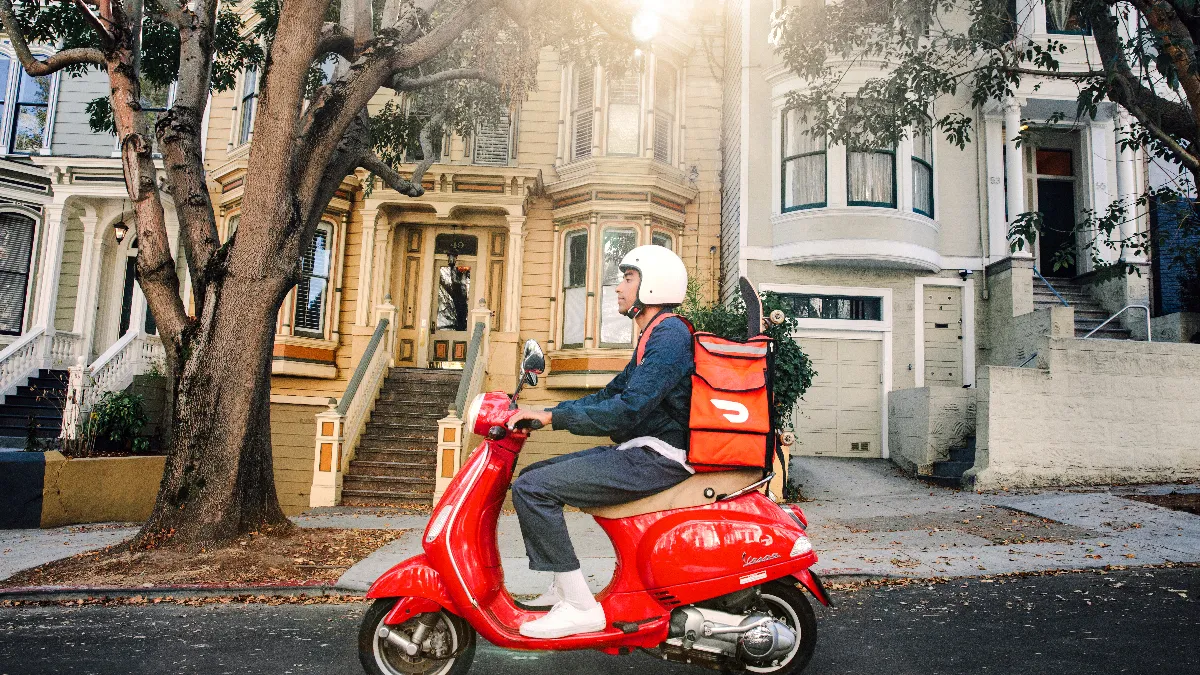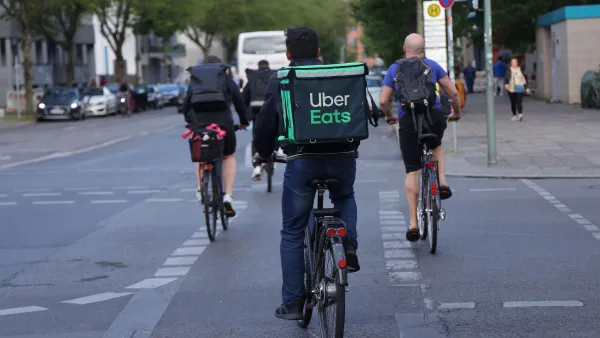Dive Brief:
- DoorDash announced Monday it’s entering the ultrafast delivery race with its DashMart virtual convenience store brand, starting with a location in New York City’s Chelsea neighborhood. Additional markets will come online in the months ahead.
- To meet the demands of rapid delivery, DoorDash will rely on full-time couriers working set schedules and has created a new entity, DashCorps, to employ them.
- DoorDash said it plans to hone DashMart’s operational model and eventually offer it as a service to retailers.
Dive Insight:
To enable its new 15-minute service, DoorDash will staff around 50 full-time employees at each DashMart dark store who will work set schedules and be actively managed by the company, Max Rettig, DoorDash’s vice president of public policy told The Washington Post. Hourly pay starts at $15, and employees will typically log between 25-40 hours per week and have the option of receiving insurance benefits he told the Post. Delivery staffers will also use a new company app to manage their workflow.
The employment of full-time delivery staff is new territory for DoorDash, which has fiercely resisted past efforts to classify gig workers as employees. And it reflects the operational realities of ultrafast delivery, which requires an on-hand, immediately available workforce to pick, pack and shuttle orders to customers’ doors in a matter of minutes. Other competitors in the space like Gorillas and Jokr also rely on full-time staffers for this reason and actively promote this to their customers.
The fact that DoorDash is establishing a new entity, DashCorps, to employ its full-time delivery workers indicates the size of the opportunity the company sees to offer rapid delivery service to grocers, convenience-store operators and other retailers.
DoorDash, however, is jumping into a very crowded ultrafast delivery market in New York City, where several players have set up shop recently, including one, 1520, that just reportedly went out of business.
The company has a few built-in advantages in the nascent space tied to its scale and the fact that millions of consumers already have the DoorDash app on their phones. But for retailers, the most important news is that DoorDash’s broader goal — at least for now — is to eventually offer DashMart rapid delivery as a service.
“We see a larger opportunity to help our partners offer quick deliveries to customers, and believe we can take our learnings and play an active role in applying them to our partners’ businesses,” Fuad Hannon, DoorDash’s head of new verticals, wrote in an email. “Our plan is to test, iterate and learn with DashMart and ultimately expand this service to partners.”
Like Instacart, DoorDash is moving beyond courier delivery and online storefronts to offer fulfillment services to retailers. This aims to capitalize on retailers’ need to move beyond store-based fulfillment and also explore new digital services as more consumers shop online. In an interview earlier this fall, Hannon said it sees DashMart as a toolkit retailers could use to build a range of services, like urban convenience delivery or a private label marketplace.
“From our point of view, it's four walls and a box that we can leverage to drive as much incremental value to our merchant partners and customers as possible,” he said.
As with its other DashMart locations, the ultrafast service will offer around 2,000 convenience and grocery staples, including local products in categories like pasta sauce and bagels. Orders carry a $1.49 delivery fee plus service charges, Hannon said, while members of DoorDash’s membership program, DashPass, get the delivery charge waived and pay lower service fees.
DoorDash unveiled its DashMart online convenience store last year and has expanded it to markets across the country. Asked exactly how many locations it has, Hannon would only say there are currently more than 25. Under this convenience delivery model, the company owns the dark stores and merchandise that power the service, with contract workers shuttling orders to consumers’ homes.
















